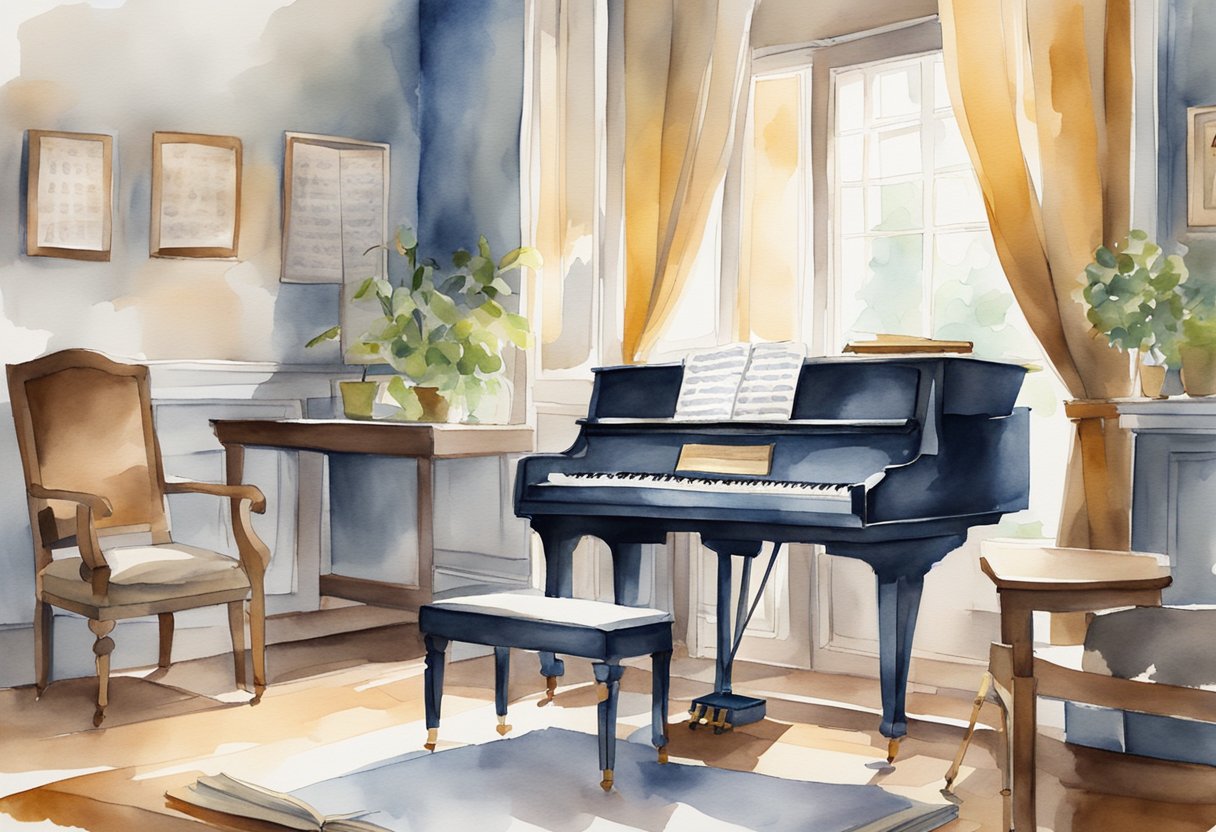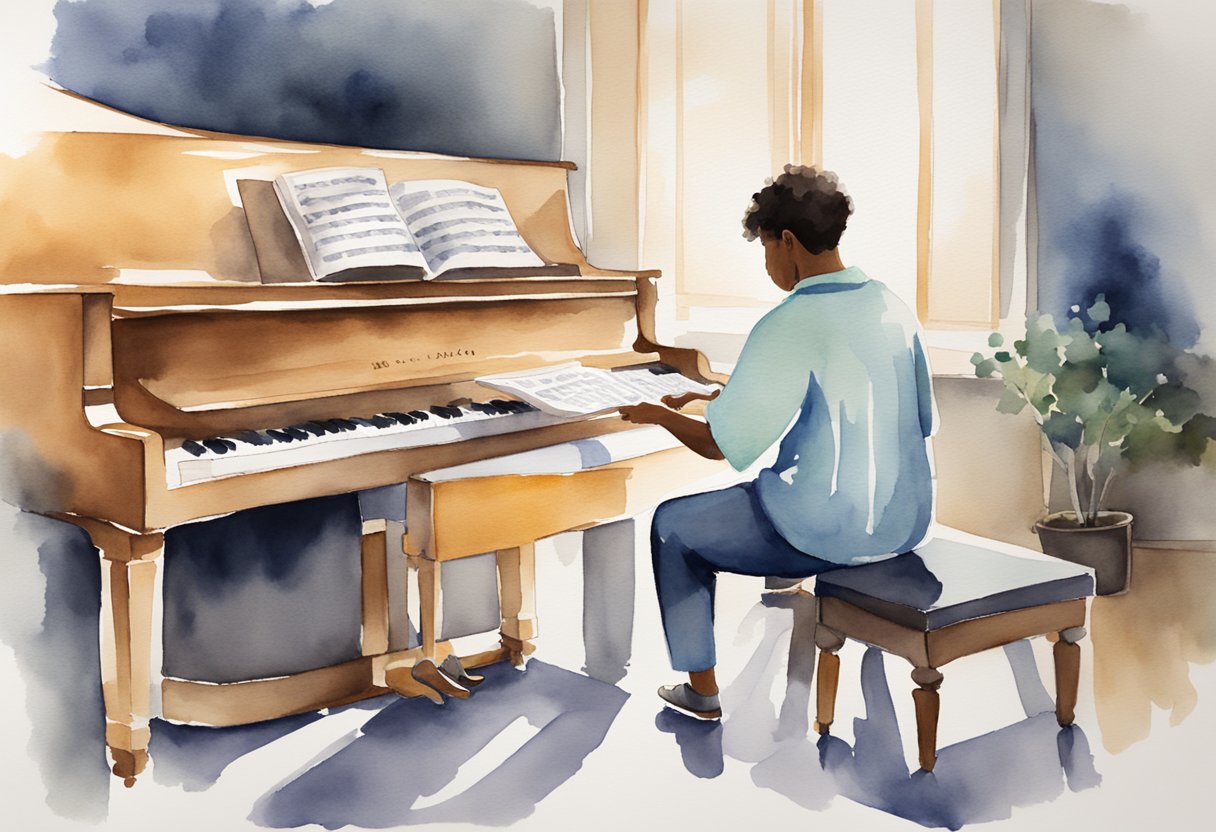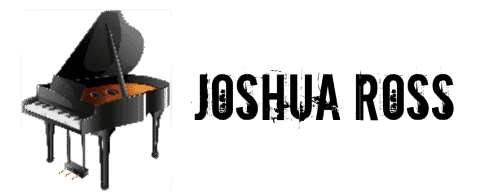As an Amazon Associate I earn from qualifying purchases.
Learning to play the piano without the guidance of a teacher is entirely possible, and many enthusiasts around the world have accomplished this goal. Online platforms and technology have been pivotal for this learning process, especially with resources like detailed YouTube tutorials and various online piano lessons that are readily available.
As a music teacher with years of experience, I’ve witnessed firsthand the determination and progress self-taught individuals can make with these tools at their fingertips.
Want to Learn Piano?Click Here

You might be wondering about the initial steps in the self-teaching journey. Securing an instrument to practice on is fundamental. Whether you acquire a piano or find yourself a keyboard, having access to the instrument is a necessary investment.
Based on my personal observation, consistent daily practice, even if it’s just for 15 minutes, can lead to noticeable improvements over time.
But where do you begin with actual music theory and technique? It’s crucial to start with the basics: understanding piano layout, learning to read music, and familiarizing yourself with simple melodies.
Some of the self-taught pianists I’ve encountered have found success by initially focusing on learning the major keys and incorporating basic chord progressions. This foundational knowledge provides a solid steppingstone to gradually tackle more complex pieces as your skills and confidence grow.
Getting Started with Self-Taught Piano

Embarking on the journey to teach yourself piano is exciting but comes with the challenge of setting a strong foundation. Your success hinges on choosing the right instrument, grasping basic piano knowledge, and creating a practice space conducive to learning.
Choosing the Right Instrument
When you start, it’s essential you have the right tool for your musical journey. Acoustic pianos, including grand and upright models, are ideal for their touch and tone.
However, if space or budget is limited, a digital piano or keyboardmay be more practical. Look for one with 88 keys and weighted action to mimic the feel of an acoustic piano. Don’t worry too much about advanced features right away; what’s important is an affordable option that doesn’t compromise on the essence of a real piano experience.
Basic Piano Knowledge
Before diving into your first practice session, solidify some foundational knowledge. Get familiar with the layout of the notes and find Middle C. Begin learning basic scales and chords to understand the structure of music; these building blocks will serve you well no matter which genre you play.
Dedicate time to studying music theory, as it’s crucial for making sense of everything from major keys to complex compositions.
Setting Up Your Practice Space
Your learning environment can greatly influence your progress. Set up a quiet, dedicated space where you can concentrate on practice without interruptions. Ensure your practice area has good lighting, and your piano or keyboard is at the right height for maintaining proper posture.
Hand position is also key, so have a mirror handy to check that you are holding your hands correctly. Remember, consistent practice is more effective than infrequent, lengthy sessions, so design your space to be welcoming and comfortable for regular use.
Advancing Your Piano Skills
As you dive into teaching yourself piano, remember that advancing your skill set is a blend of consistent practice, understanding theory, and engaging with interactive tools and resources that cater to various aspects of musicianship.
Learning and Practice Techniques
Effective learning and practice are crucial to becoming a proficient pianist. Focus on hand independence; start with simple exercises and gradually increase complexity. Incorporate sight-reading by using easy sheet music and progress to more challenging pieces.
Spend time each day to practice key exercises; this constant dedication will train your fingers and help you learn to play by ear.
Learning Piano Via YouTube
YouTube is a treasure trove of free piano lessons and tutorials that can cater to your learning process at every stage. Search for lessons on musical notation or hand independence to help develop your technique.
For instance, lessons on classics like “Mary Had a Little Lamb” help you grasp basic melodies while teaching you the fundamentals of timing and rhythm.
Piano Learning Apps To Try
In the era of digital learning, various apps have made piano education more accessible. Simply Piano and Flowkey are two popular platforms that offer structured learning through your tablet or smartphone.
These apps provide interactive feedback and a comprehensive library of songs to practice, making them excellent tools for the self-taught musician.
Playing Songs and Building Repertoire
Playing actual songs is both motivating and educational as you teach yourself piano. Start with simple melodies, then branch out into more complex pieces.
Learning to play songs creates a practical application for your skills and helps solidify concepts like tempo, dynamics, and expression. Building a varied repertoire showcases your progress and keeps you engaged in the continuous learning journey.
Challenges With Teaching Piano To Yourself
Embarking on teaching yourself piano is a daring and admirable endeavor. However, certain hurdles can slow down your development, like hitting unpredictable walls in progress. Without a teacher to guide and correct you, these challenges can be daunting.
When To Hire A Piano Teacher
Picking up skills on your own has its merits, but knowing when to hire a piano teacher is crucial. You might find yourself practicing for hours, yet making little to no headway. This is what musicians often refer to as “hitting a wall,” a common occurrence when you lack external feedback.
Should your fingers stubbornly refuse to coalesce into smooth, flowing motions for that Chopin piece you adore, or if reading sheet music remains as decipherable as hieroglyphs after weeks of effort, a teacher’s expertise might be the solution.
They can provide targeted exercises to overcome the exact hurdles you’re facing and can hold your handthrough complex pieces, encouraging you when you falter.
Remember, every musician’s journey is intimate and unique. A professional’s insight could be indispensable for understanding nuanced concepts, such as the affective meaning behind dynamics or the finesse in phrasing.
A seasoned teacher will spot the subtle misalignments in your posture or fingering that you might miss, elements that are critical for your growth as a pianist.
In essence, a piano teacher acts as a personalized roadmap, helping you navigate through the uncharted territories of scales, arpeggios, and those dreaded baroque ornaments.
They don’t just impart knowledge; they tailor their teaching to match your learning style, which ensures that the odds of you reaching a lack of progress stand as minimal as possible.
Hello & thanks for stopping by! I’m a professional concert pianist and piano instructor. In the United States, I’ve given successful performances in several places including New York, Florida, Connecticut, & New Jersey, I have also performed internationally in Italy and made my Carnegie Hall debut in 2014. I enjoy blogging about the piano, the art of performance, general music, current events and the latest in music production.
